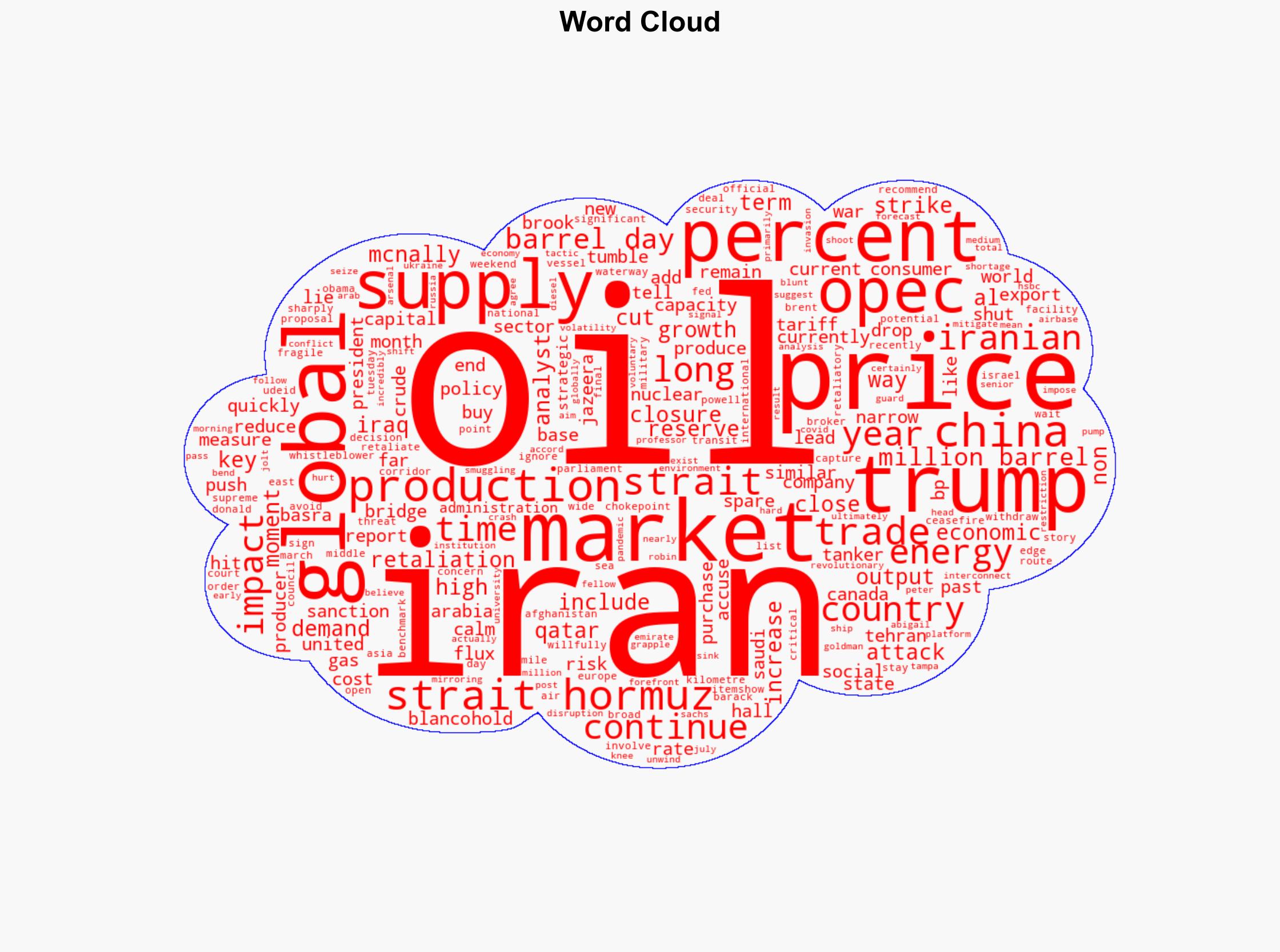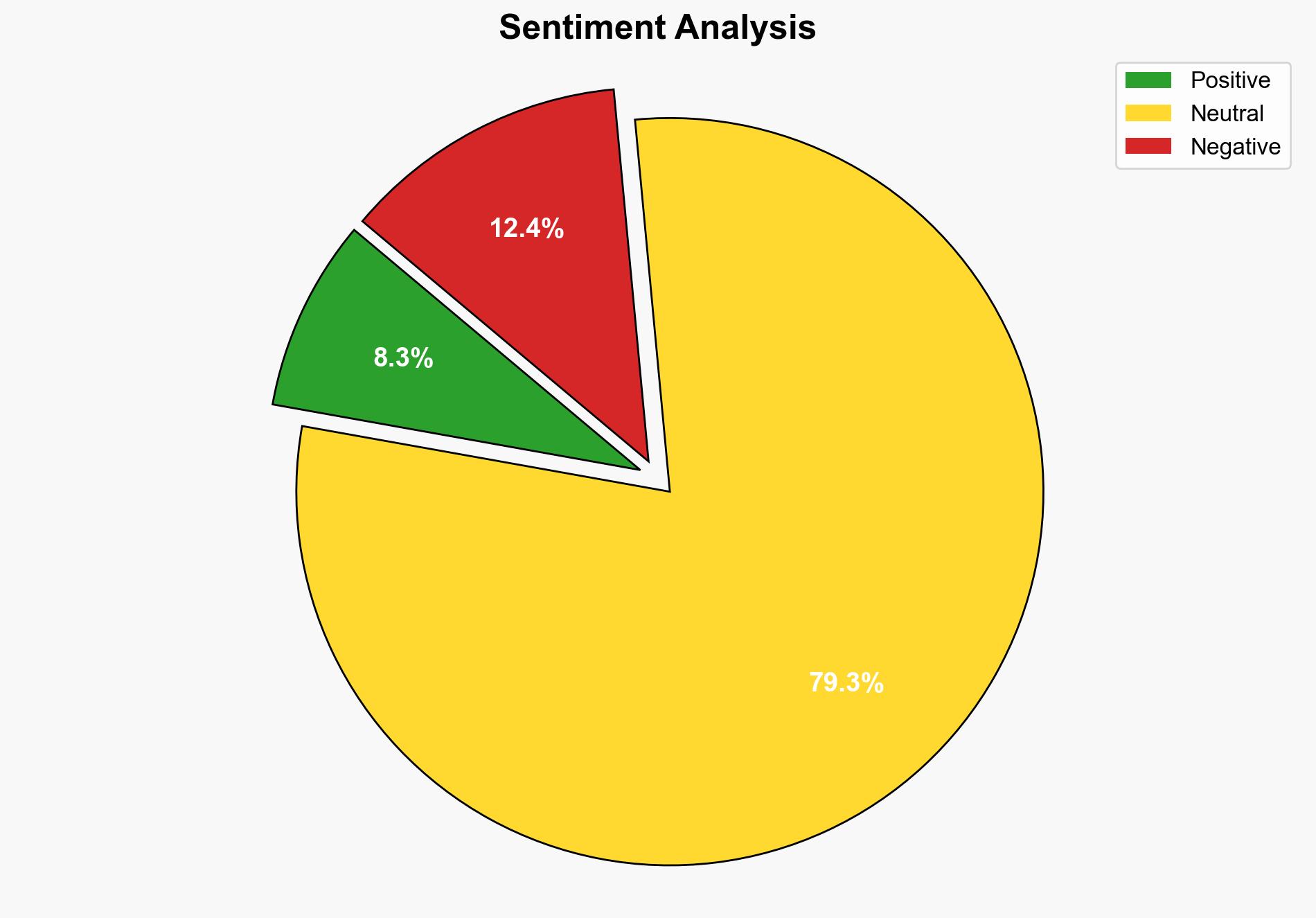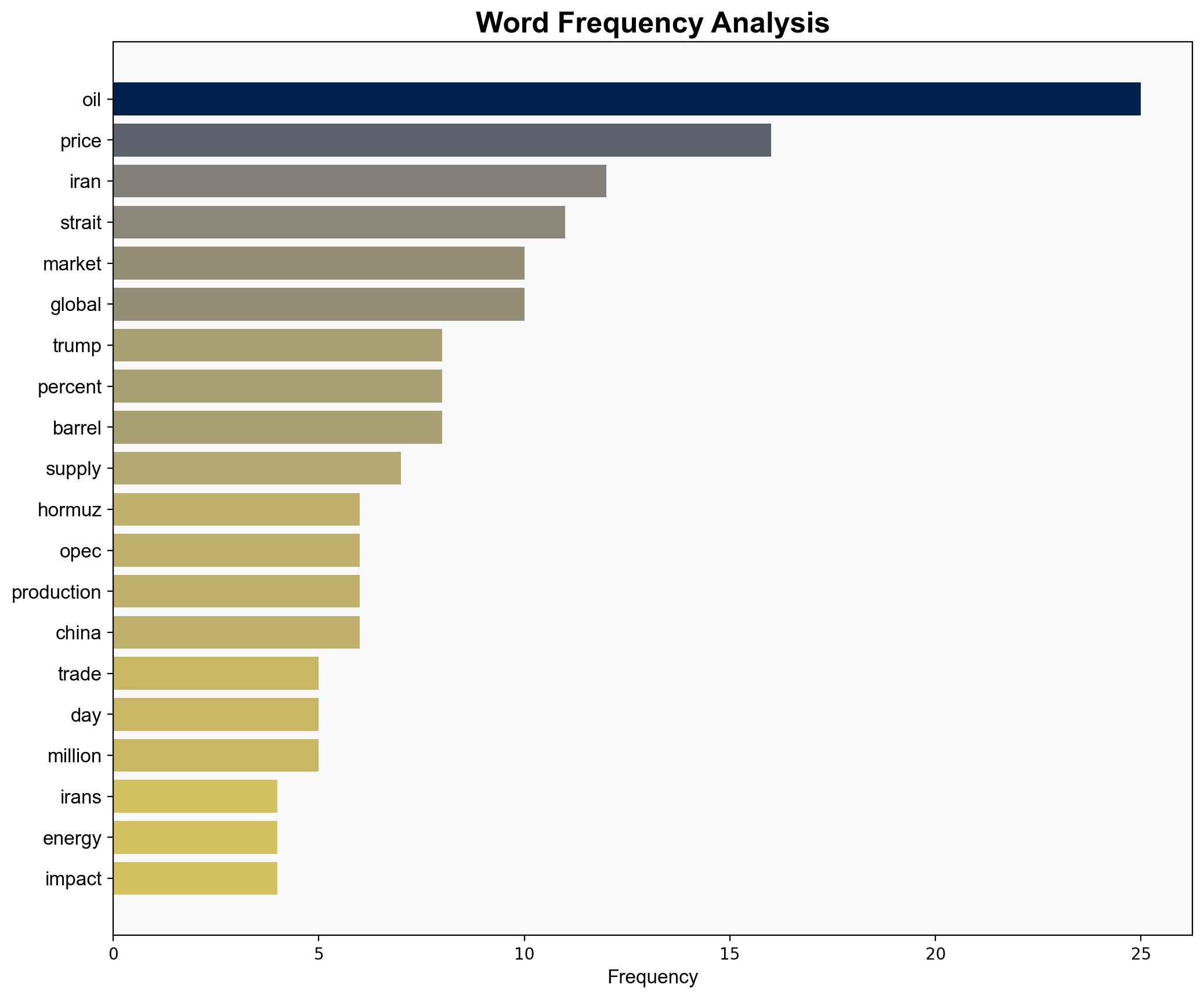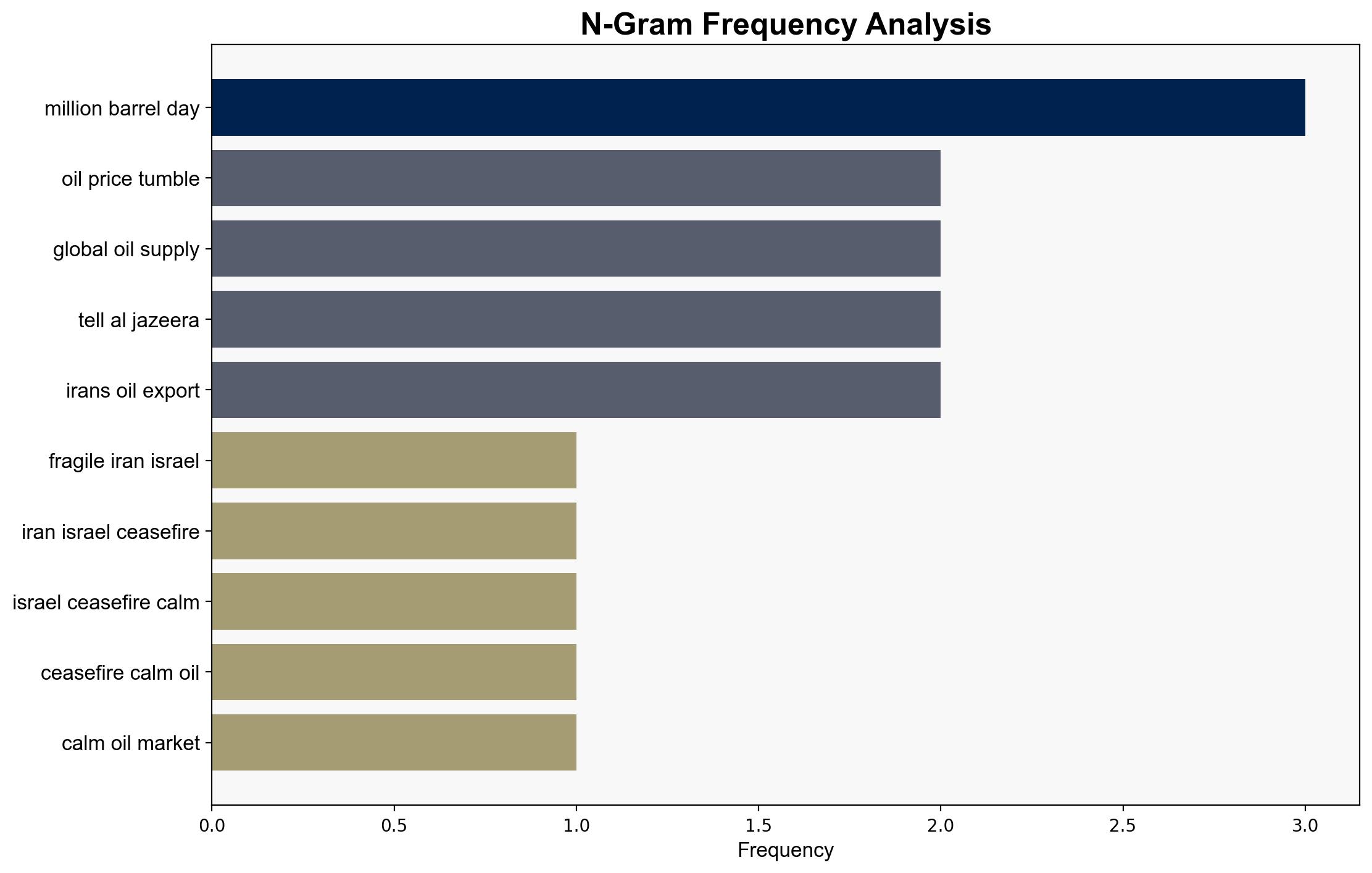Fragile Iran-Israel ceasefire calms oil markets – Al Jazeera English
Published on: 2025-06-24
Intelligence Report: Fragile Iran-Israel ceasefire calms oil markets – Al Jazeera English
1. BLUF (Bottom Line Up Front)
The recent ceasefire between Iran and Israel has temporarily stabilized global oil markets, leading to a decrease in oil prices. However, the situation remains volatile due to potential retaliatory actions by Iran, particularly concerning the strategic Strait of Hormuz. It is crucial for stakeholders to monitor developments closely and prepare for possible disruptions in oil supply.
2. Detailed Analysis
The following structured analytic techniques have been applied to ensure methodological consistency:
Causal Layered Analysis (CLA)
– **Surface Events**: The ceasefire has led to a temporary reduction in oil prices.
– **Systemic Structures**: The Strait of Hormuz remains a critical chokepoint for global oil supply.
– **Worldviews**: Regional tensions continue to influence global energy markets.
– **Myths**: The belief that military actions are the primary threat to oil stability is challenged by economic retaliations.
Cross-Impact Simulation
– Potential closure of the Strait of Hormuz could significantly impact global oil supply chains, affecting economies reliant on oil imports.
– Economic measures by Iran, such as targeting oil tankers, could escalate regional tensions and disrupt trade routes.
Scenario Generation
– **Best Case**: The ceasefire holds, leading to sustained lower oil prices and increased market stability.
– **Worst Case**: Iran closes the Strait of Hormuz, causing a significant spike in oil prices and global economic instability.
– **Most Likely**: Continued volatility with intermittent disruptions, but no prolonged closure of the Strait.
3. Implications and Strategic Risks
The fragile ceasefire presents risks of renewed conflict, which could destabilize oil markets. Economic retaliations by Iran, such as targeting oil tankers, pose threats to global trade and energy security. The potential for cyber-attacks on critical infrastructure remains a concern, necessitating robust defensive measures.
4. Recommendations and Outlook
- Enhance monitoring of the Strait of Hormuz to anticipate and respond to potential disruptions.
- Develop contingency plans for alternative oil supply routes to mitigate the impact of a closure.
- Engage in diplomatic efforts to maintain the ceasefire and reduce regional tensions.
- Scenario-based projections suggest preparing for moderate disruptions while leveraging strategic reserves to stabilize markets.
5. Key Individuals and Entities
– Robin Brooks
– Peter McNally
– Abigail Hall Blanco
6. Thematic Tags
national security threats, energy security, regional stability, economic retaliation




